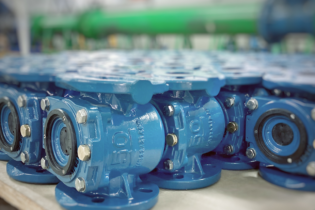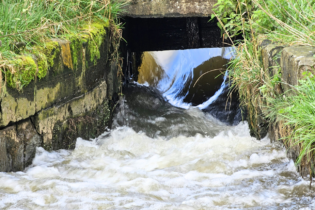The Department of Water Affairs has a vision of a South Africa that has an embedded and actively applied culture of water conservation and water demand management in which all sectors share water resources in an equitable and sustainable manner.
Earlier this year the deputy minister of Water and Environmental Affairs, Rejoice Mabudafhasi, announced the 2012 winners of the Water Conservation and Water Demand Management Sector Awards. Through the awards, the department seeks to create a platform and an enabling environment for all role players and stakeholders from all sectors to start appreciating and understanding the importance of conserving water. This is the third event of its type that recognises excellence in the field of Water Conservation and Demand Management, and this year 44 nominations were received across four categories, namely:- Agriculture
- Industry, mining and power
- Domestic or local government
- Business.
This project is one of the largest industrial meter auditing projects undertaken to date in Africa as it involves the main industrial areas of Ekurhuleni which in turn include some of the largest industries in South Africa. The project has been highly successful in identifying the numerous broken or missing water meters which have since been replaced or repaired where necessary. In this manner, Ekurhuleni intends to ensure that all water supplied to its large consumers is properly measured and billed each month. The increase in revenue from this exercise is such that it has a pay-back period of between six months and a year, making it one of the most effective water demand management interventions in the overall WDM programme.
Tshwane Metro came second in the Local Government category after finishing first in the previous award event two years ago and was recognised for its continued WDM interventions which have helped to reduce its water losses and non-revenue water to approximately 25%, which is one of the lowest for any major city in South Africa. Trevor Westman from the City of Tshwane was present to receive the award on behalf of the city, and it was the first time that any city has been recognised in consecutive years for its WDM efforts. Tshwane is aiming to reduce its leakage levels even further in years to come and has created an internal unit dedicated to the efficient use of water throughout the city. The third award was presented to Andre Kowalewski from the Drakenstein Municipality in the Western Cape. This was the first time that Drakenstein received recognition for its efforts in the WDM field, having beaten many of the large municipalities and metros such as City of Cape Town. Kowalewski has been actively involved in reducing water wastage for many years, with his municipality being one of the first in the Western Cape to introduce pressure management on a large scale using some of the most advanced equipment available, imported from Europe. Drakenstein has driven its non-revenue water down to approximately 10%, making it one of the lowest levels in South Africa. The award was presented in recognition of the municipality’s recent efforts to lower leakages even further in specific areas that experienced very high levels of plumbing leakage within the households. This is a problem issue in many parts of South Africa and the efforts of Kowalewski demonstrate that progress can be made on a sustainable basis if properly implemented. In summary it was a very positive outcome, particularly for Tshwane with its second place overall. In addition, all three winners are being supported by the Pretoria based WRP Consulting Engineers and its local subsidiary 4Water in the case of Klein Drakenstein. This is the third time in a row that a project supported by WRP has taken the top honours in the national awards with previous recipients being Emfuleni Local Municipality and the City of Tshwane. The awards are becoming more prestigious each year and certainly the top accolades in the Water Conservation and Water Demand Management arena.






